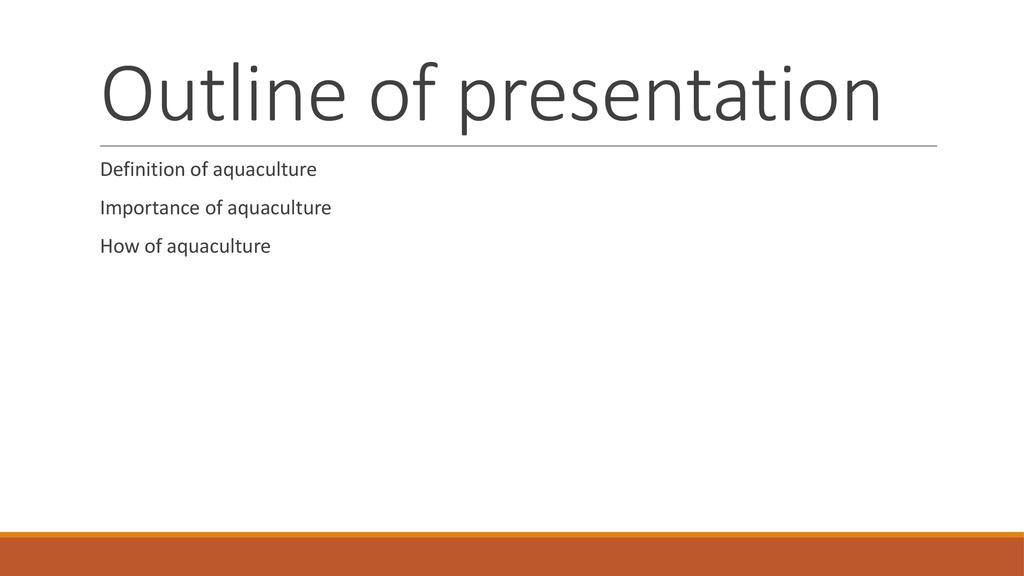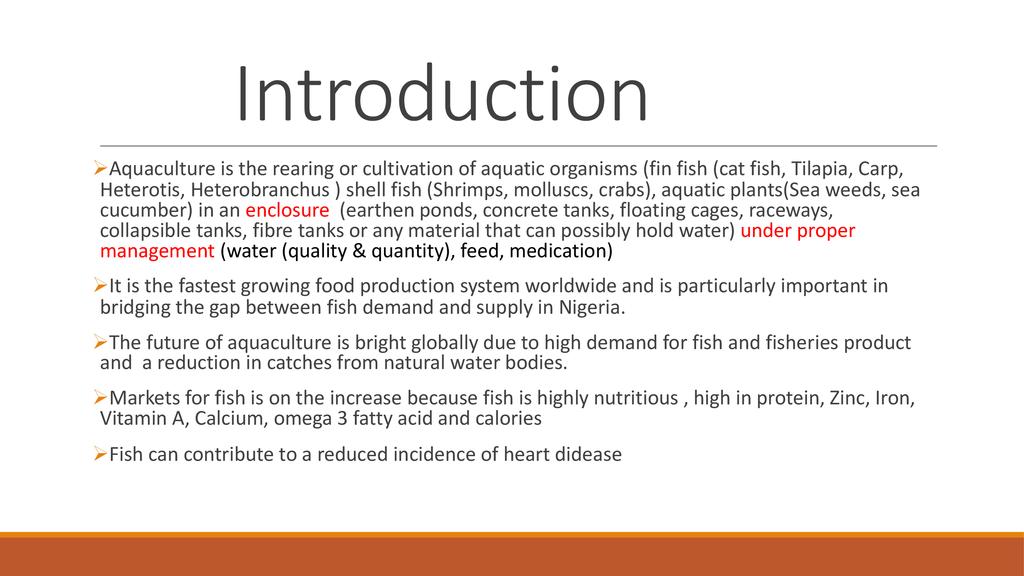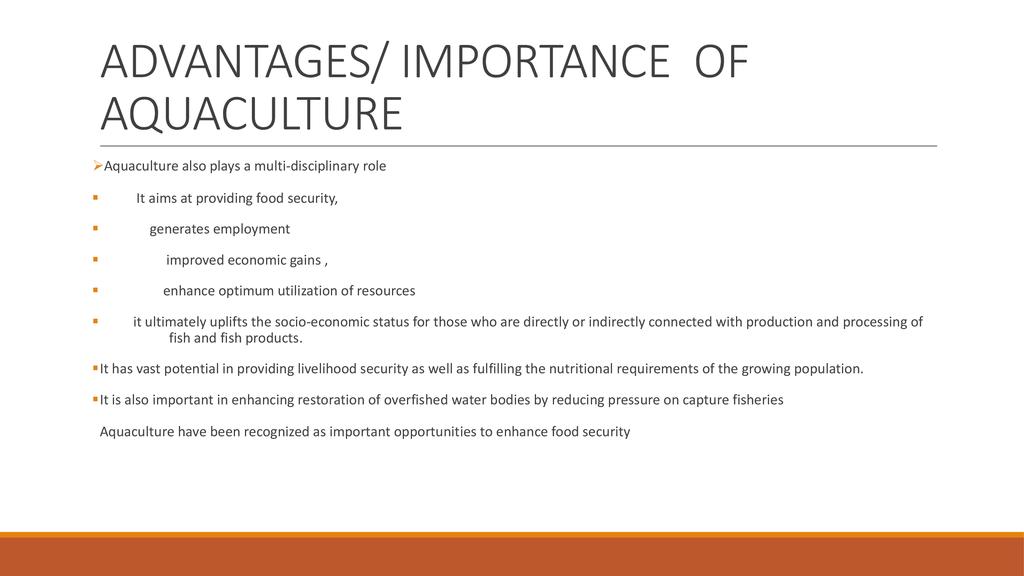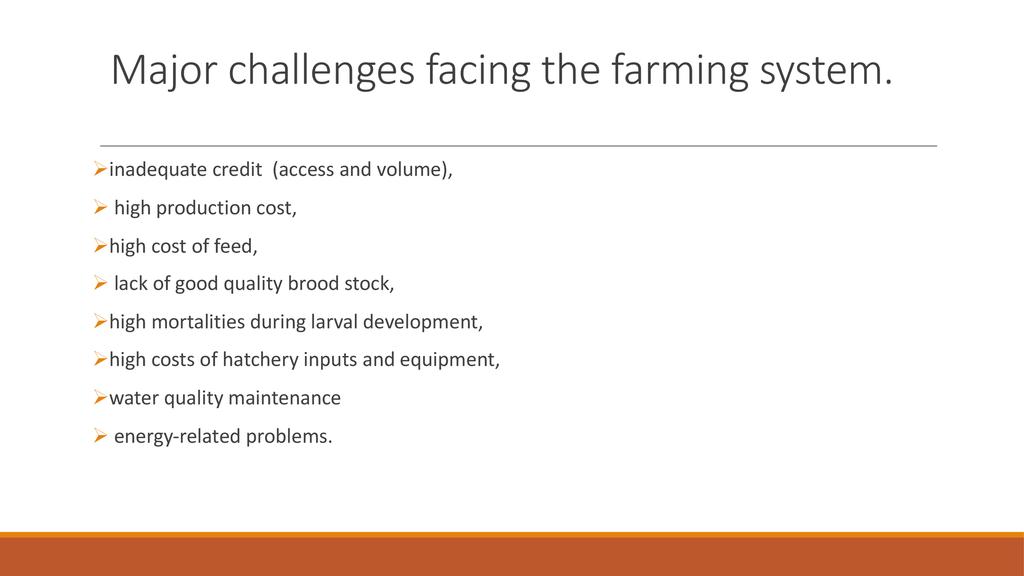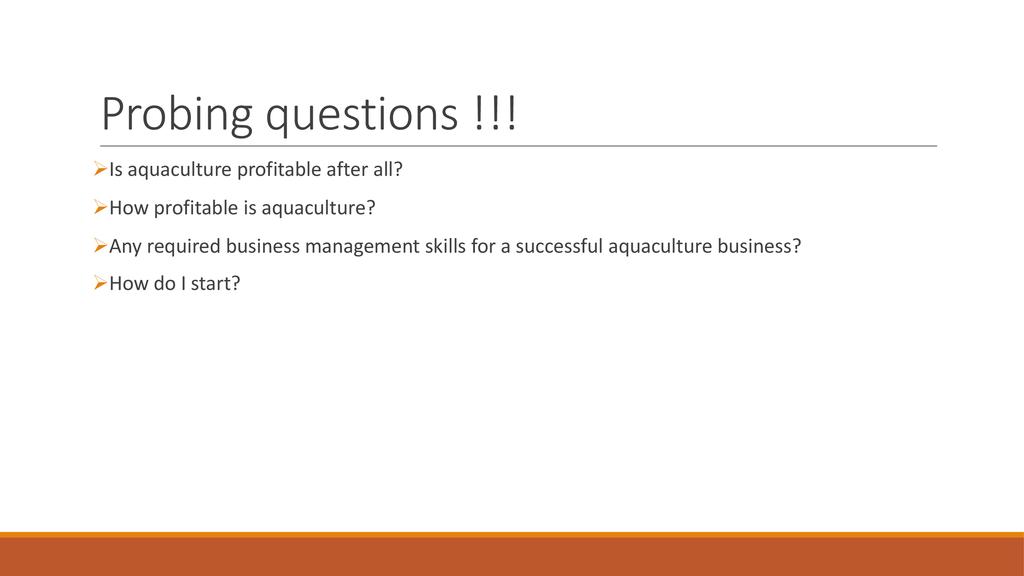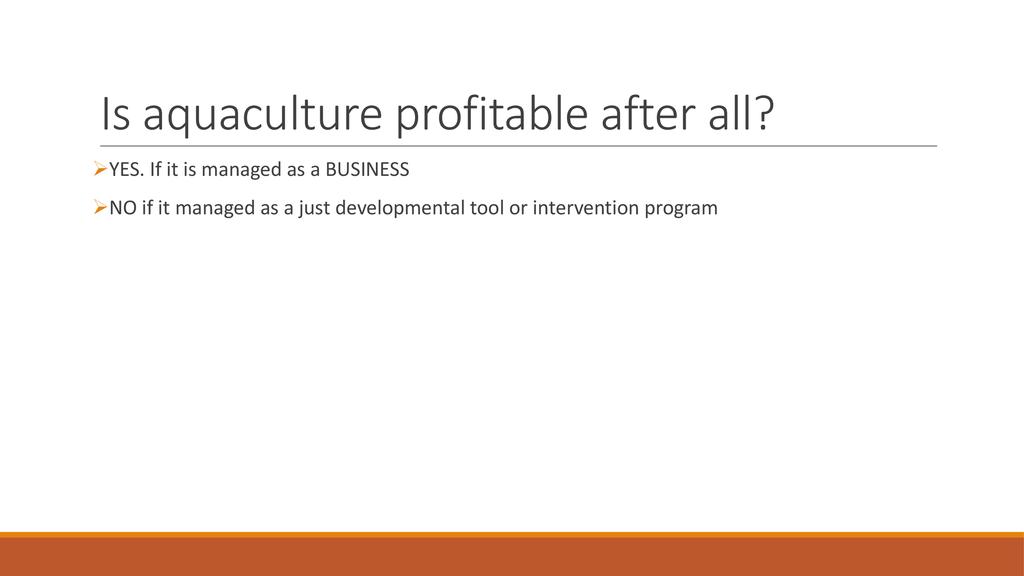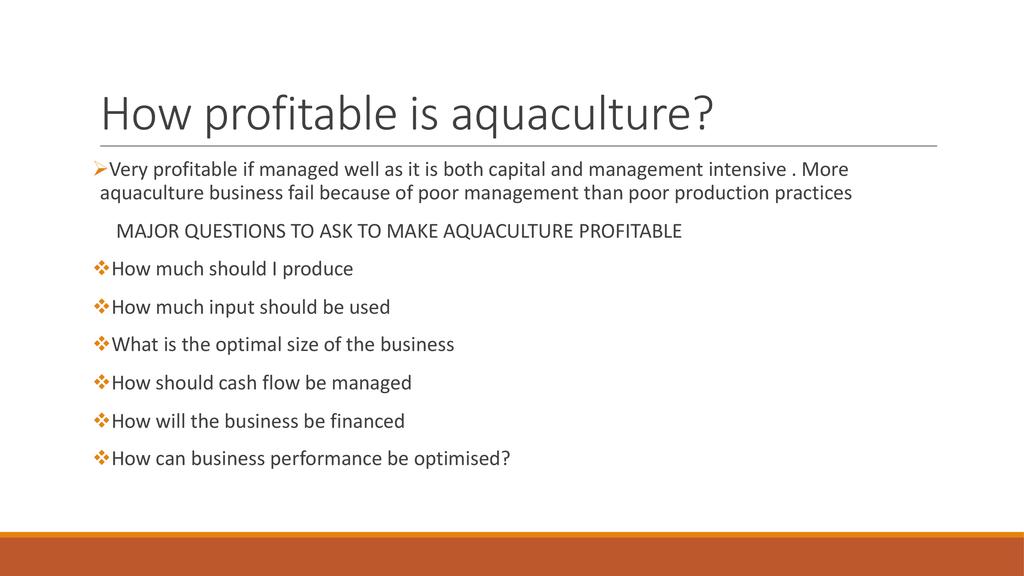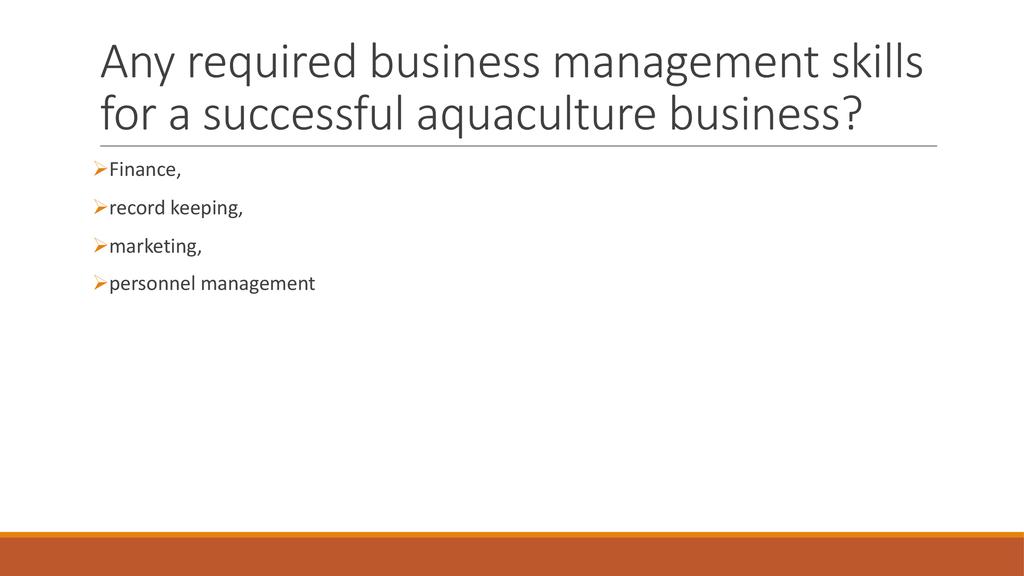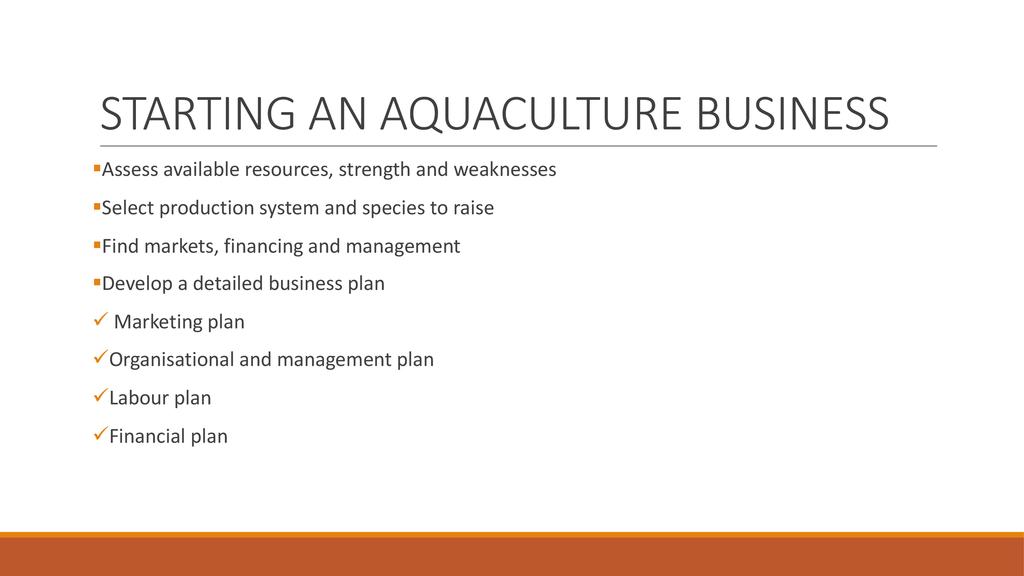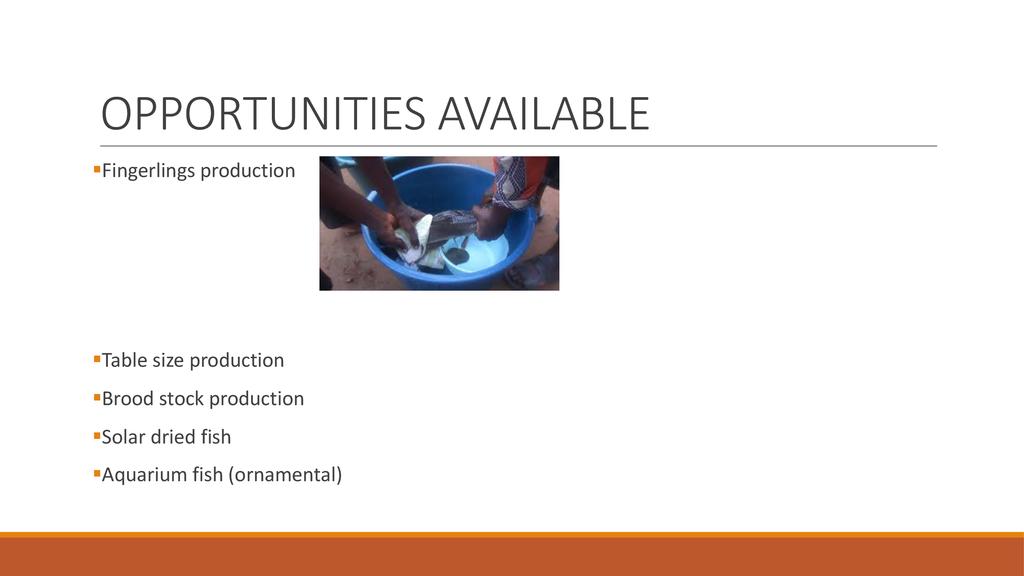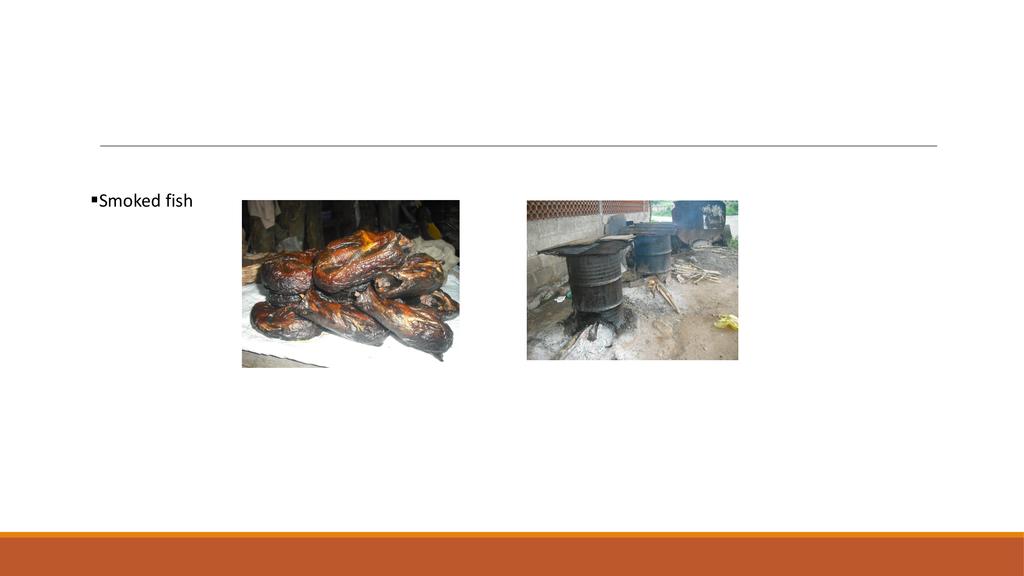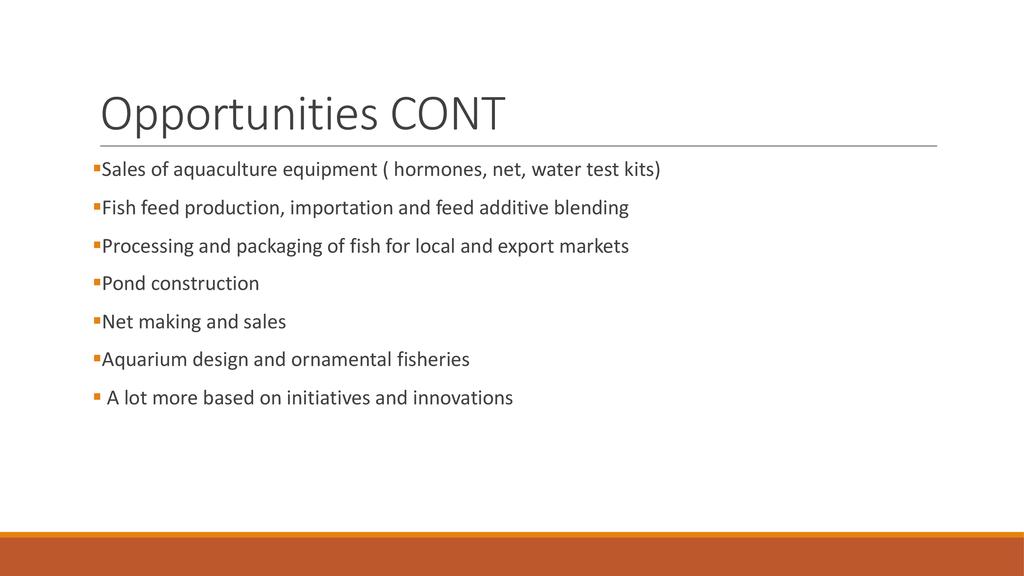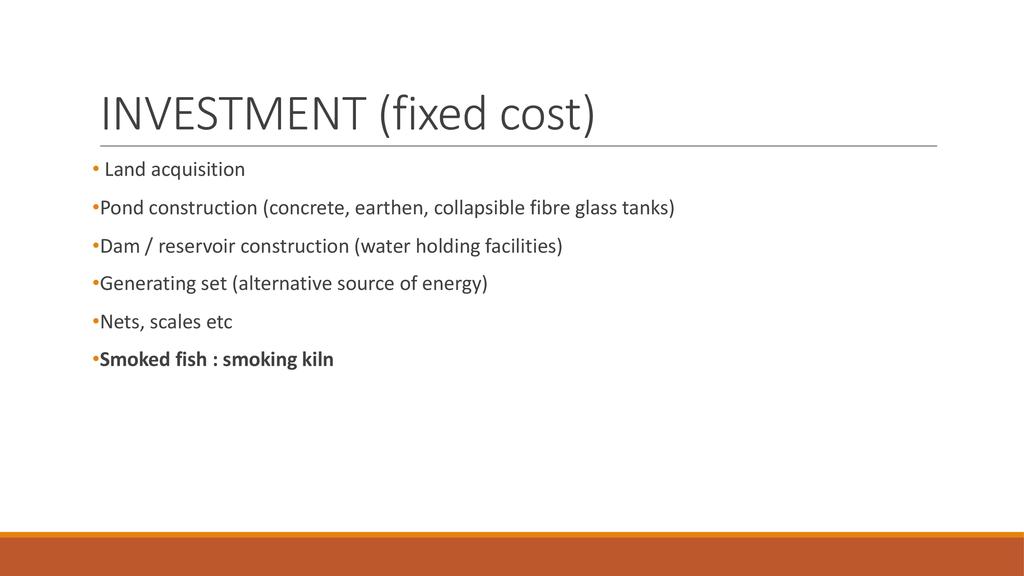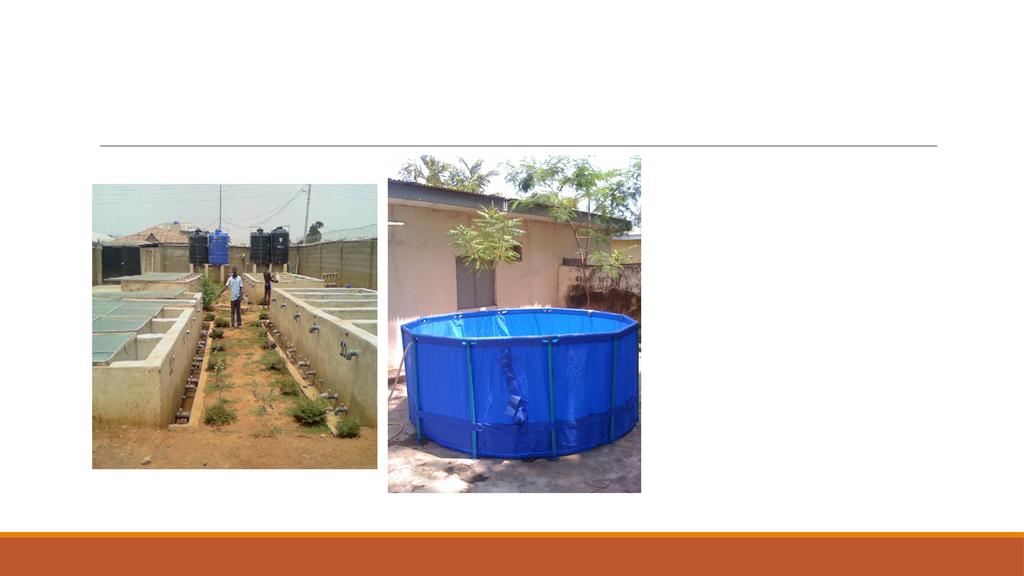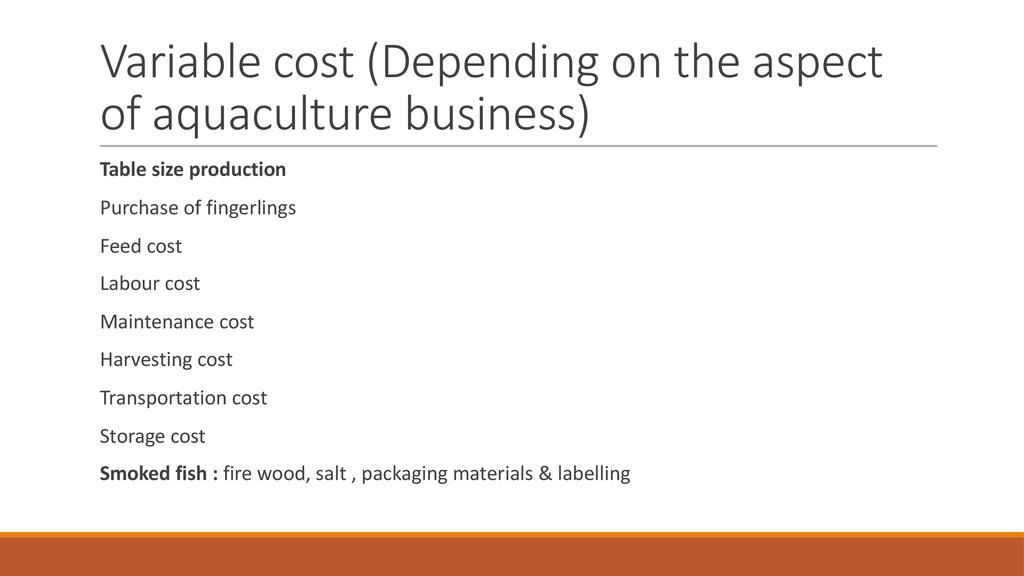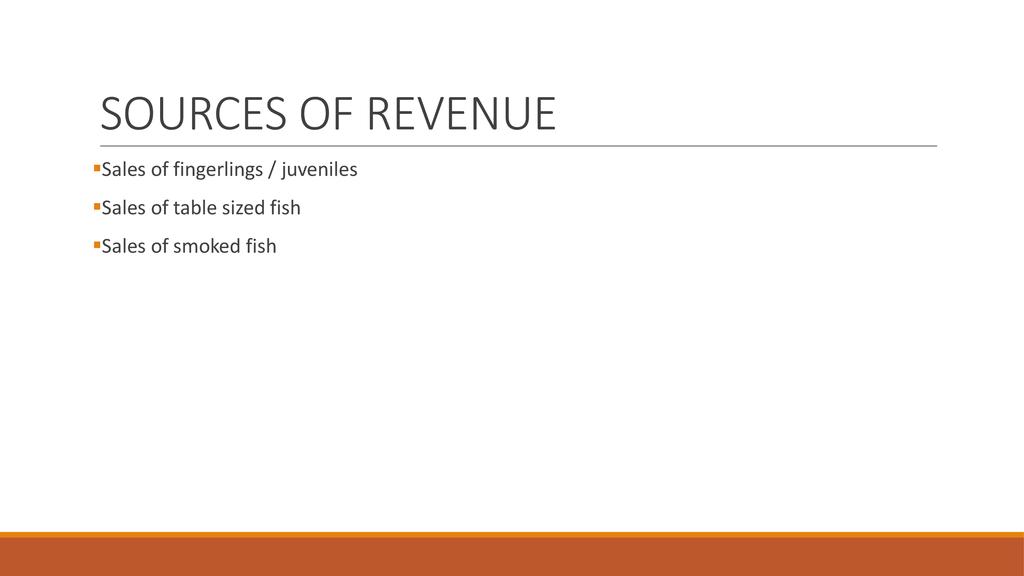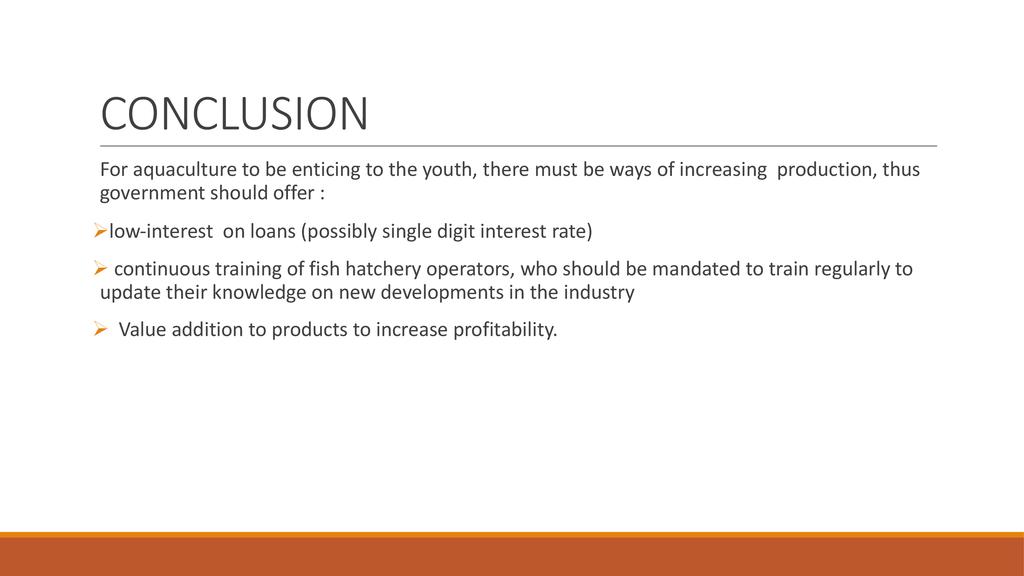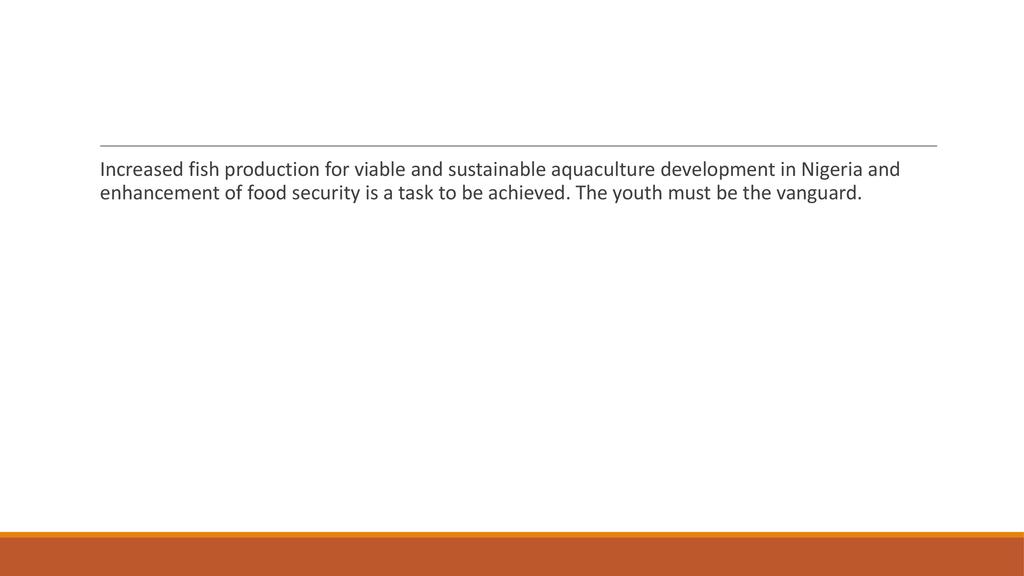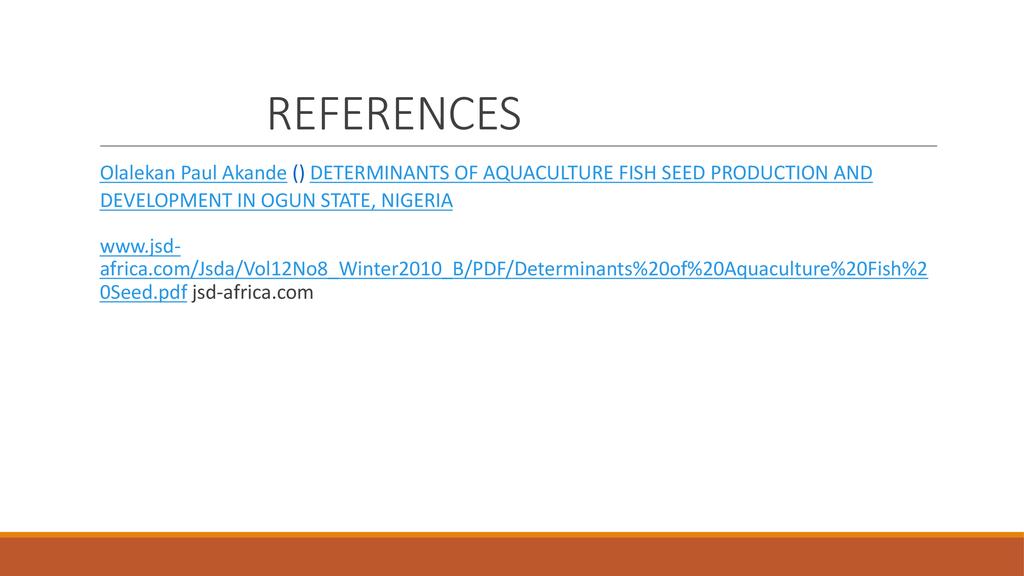Aquaculture: a veritable tool for youth development, empowerment and entrepreneurship
Người Thuyết trình: Omitoyin Siyanbola - Department of Aquaculture and Fisheries Management, University of Ibadan, Nigeria
Sự kiện: 2016 ECHO West Africa Forum: Ibadan, Nigeria (12-04-2016)
- Aquaculture is the rearing or cultivation of aquatic organisms (fin fish (cat fish, Tilapia, Carp, Heterotis, Heterobranchus ) shell fish (Shrimps, molluscs, crabs), aquatic plants(Sea weeds, sea cucumber) in an enclosure (earthen ponds, concrete tanks, floating cages, raceways, collapsible tanks, fibre tanks or any material that can possibly hold water) under proper management (water (quality & quantity), feed, medication)
- It is the fastest growing food production system worldwide and is particularly important in bridging the gap between fish demand and supply in Nigeria.
- The future of aquaculture is bright globally due to high demand for fish and fisheries product and a reduction in catches from natural water bodies.
- Markets for fish is on the increase because fish is highly nutritious , high in protein, Zinc, Iron, Vitamin A, Calcium, omega 3 fatty acid and calories
- Fish can contribute to a reduced incidence of heart didease
ADVANTAGES/ IMPORTANCE OF AQUACULTURE
- Aquaculture also plays a multi-disciplinary role
- It aims at providing food security,
- generates employment
- improved economic gains,
- enhance optimum utilization of resources
- it ultimately uplifts the socio-economic status for those who are directly or indirectly connected with production and processing of fish and fish products.
- It has vast potential in providing livelihood security as well as fulfilling the nutritional requirements of the growing population.
- It is also important in enhancing restoration of overfished water bodies by reducing pressure on capture fisheries Aquaculture have been recognized as important opportunities to enhance food security

